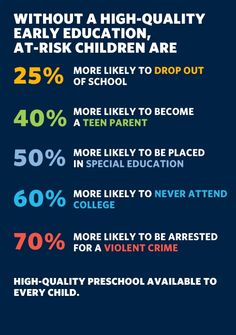Questions to Ask When Looking at a Preschool: Ensure Your Child’s Bright Future

Questions to ask when looking at a preschool include the child-to-staff ratio, curriculum, safety measures, qualifications and experience of the teachers, and parental involvement opportunities. Preschool is a critical time for a child’s development, so finding the right fit is essential.
With a myriad of options available, it’s crucial to ask questions that will help ensure your child’s well-being, education, and overall experience. By asking the right questions, you can make an informed decision that will positively impact your child’s early years.
Choosing The Right Preschool
When it comes to your child’s education, selecting the right preschool is crucial. It sets the foundation for their future learning and development. But with so many options available, how do you know which preschool is the right fit for your little one? Asking the right questions can help you make an informed decision. Here are three subfactors to consider when choosing the right preschool.
Factors Influencing Preschool Selection
Several factors influence the selection of a preschool. While every family has different priorities, here are some common considerations to keep in mind:
- Location: Is the preschool conveniently located near your home or workplace?
- Cost: What are the fees, and does the preschool offer any financial assistance?
- Curriculum: What type of educational approach does the preschool follow?
- Class size: How many students are there per class, and is it suitable for your child’s learning style?
- Teacher qualifications: What are the credentials and experience of the teachers?
Aligning Preschool Offerings With Children’s Needs
Each child has unique needs and learning styles. It’s crucial to find a preschool that aligns with your child’s individual requirements. Consider the following when evaluating preschool offerings:
- Age-appropriate activities: Does the curriculum include activities that promote age-specific development?
- Special needs support: Is the preschool equipped to support children with special needs?
- Social-emotional development: How does the preschool foster social and emotional growth?
- Extracurricular activities: Are there opportunities for your child to explore their interests outside of the classroom?
Assessing The Quality Of Preschool Education
Quality education is paramount in a preschool setting. To assess the quality of education provided, consider the following:
- Accreditations: Is the preschool accredited by recognized educational organizations?
- Teacher-student ratio: Is the ratio balanced to ensure personalized attention?
- Learning environment: Is the classroom space inviting and conducive to learning?
- Educational resources: Are there age-appropriate resources available to enhance learning?
- Parent involvement: What level of involvement is encouraged by parents?
Preschool Exploration Questions
When it comes to choosing the right preschool for your child, asking the right questions can make all the difference. It’s important to clarify your own educational priorities and gather as much information as possible before making a decision. By asking the preschool exploration questions below, you can ensure that you are making an informed choice that aligns with your child’s needs.
Importance Of Asking The Right Questions
As a parent, asking the right questions is crucial when evaluating potential preschools. By doing so, you can gain insights into the program’s educational approach, curriculum, and overall philosophy. This information allows you to assess whether the preschool aligns with your child’s learning style and fosters a nurturing and stimulating environment. Not only does asking the right questions give you a deeper understanding of the preschool, but it also empowers you to make an informed decision.
Clarifying Your Own Educational Priorities
Before embarking on your search for the perfect preschool, it’s essential to clarify your own educational priorities. Every child is unique, and understanding what matters most to you can help guide your decision-making process. Consider what aspects are crucial for your child’s growth and development. Are you looking for a play-based curriculum that encourages hands-on learning? Or perhaps you prioritize a structured environment that focuses on early literacy and numeracy skills? By defining your educational priorities, you can better evaluate each preschool you visit and ensure it meets your expectations.
When visiting prospective preschools, come prepared with a list of questions to ask. These questions should cover various aspects of the program, including the curriculum, teacher qualifications, facilities, and parent involvement. Here are some questions to consider:
- What is the preschool’s educational philosophy?
- How does the curriculum support children’s social, emotional, and academic development?
- What are the qualifications and experience of the teachers?
- What is the student-to-teacher ratio?
- How are children’s individual needs and learning styles accommodated?
- What are the daily routines and activities provided?
- What is the approach to discipline and behavior management?
- What measures are in place to ensure the safety and security of the children?
- How does the preschool communicate with parents and involve them in their child’s learning?
- What extracurricular activities or enrichment programs are available?
By asking these preschool exploration questions, you can gain valuable insights that will help you make an informed decision about the right preschool for your child. Remember, each question is an opportunity to gather important information that will contribute to your understanding of how the preschool will meet your child’s needs and educational priorities.
Uncovering The Learning Environment
Choosing the right preschool is a crucial decision for parents as it sets the foundation for a child’s educational journey. One key aspect to consider when evaluating a preschool is the learning environment. This encompasses the teacher-student dynamic and the physical space and resources available. Understanding these factors can help parents make an informed choice. Here, we will delve into the two important aspects of the learning environment that parents must investigate when considering a preschool.
Investigating The Teacher-student Dynamic
The teacher-student dynamic plays a vital role in nurturing a child’s love for learning. As a parent, it’s essential to uncover how the preschool tackles this aspect. Start by asking the following questions:
- What is the teacher-to-student ratio in the classroom?
- Does each child receive individual attention and guidance from the teacher?
- How does the preschool promote collaboration and interaction among the students?
- Are the teachers compassionate, patient, and dedicated to the well-being and growth of each child?
By getting answers to these questions, parents can gain insights into the quality of the teacher-student relationship and determine if it aligns with their expectations and the needs of their child.
Evaluating The Physical Space And Resources
The physical space and resources within a preschool play a crucial role in facilitating a child’s cognitive, social, and physical development. When visiting a preschool, pay attention to the following:
- Is the classroom spacious, clean, and well-organized?
- Are there age-appropriate learning materials and toys available?
- Does the preschool offer a variety of resources, such as books, art supplies, and outdoor play areas?
- Is the environment aesthetically pleasing and stimulating for young minds?
By evaluating the physical space and resources, parents can determine if the preschool provides a rich learning environment that fosters creativity, exploration, and growth. It’s important for children to have access to varied resources that support their development in different areas.
Tailoring To Your Child’s Growth
When exploring preschool options for your child, be sure to ask important questions about how the program tailors to their growth and development. Understand how the school meets their individual needs and supports their learning journey.
When it comes to choosing a preschool, one of the most important factors to consider is how well it aligns with your child’s needs and developmental milestones. As parents, we want to ensure that our children are receiving the best possible education and support during their early years. With that in mind, here are some key questions to ask when looking at a preschool, focusing on tailoring to your child’s growth.
Identifying Opportunities For Developmental Milestones
The preschool years are a crucial time for a child’s development, as they undergo significant growth in various areas, including social, emotional, cognitive, and physical development. It’s essential to choose a preschool that actively supports and encourages your child’s progress across these milestones.
When evaluating a preschool, ask about its curriculum and how it addresses different areas of development. Look for programs that provide activities and experiences that promote social interaction, problem-solving, language development, and fine and gross motor skills. Consider asking the following questions:
- How do you incorporate socialization and communication skills into your daily routine?
- What opportunities are there for sensory play and fine motor skill development?
- How do you support cognitive development through age-appropriate learning activities?
- What strategies do you use to promote self-regulation and emotional intelligence?
Ensuring A Balance Of Play And Academic Instruction
Preschool should be a place where children have ample opportunities to learn through play, exploration, and hands-on experiences. While academic instruction is essential, it’s equally important for children to have time for creative expression and independent discovery.
When visiting a preschool, observe their learning environment. Look for spaces that are set up for active play, imaginative play, and quiet reflection. Ensure that there is a variety of materials and resources available to support different types of play.
Additionally, inquire about the balance between play and academic instruction. Ask questions such as:
- How do you incorporate play-based learning into the curriculum?
- Can you provide examples of how you integrate academics into playful activities?
- What measures do you take to ensure that children are engaged and motivated during both structured and unstructured learning time?
Safety And Care Essentials
Discover the essential questions to ask before choosing a preschool for your child. Ensure their safety and care with these important inquiries.
When choosing a preschool for your child, safety and care should be at the top of your priority list. You want to make sure that your little one will be well taken care of in a secure and nurturing environment. To help you in your decision-making process, here are some important questions to ask when evaluating the safety and care aspects of a preschool.
Analyzing Health, Safety, And Nutrition Policies
Ensuring that a preschool has clear and comprehensive health, safety, and nutrition policies is crucial. These policies outline the guidelines and procedures that the school follows to maintain a safe and healthy environment for the children in their care.
- Are there specific health protocols in place, such as regular health check-ups and vaccinations?
- How does the school handle illnesses and emergencies?
- Is there a policy regarding medication administration?
- What measures are in place to prevent and control the spread of contagious diseases?
- Is there a sufficient ratio of qualified staff to ensure proper supervision and attention to each child’s needs?
- Does the school have a nutritious eating plan that aligns with your child’s dietary requirements?
By analyzing the health, safety, and nutrition policies of a preschool, you can gain a better understanding of how they prioritize the well-being of their students.
Understanding Emergency Preparedness At The School
Emergency preparedness is a crucial aspect to consider when evaluating the safety of a preschool. You want to ensure that the school has measures in place to handle a wide range of potential emergencies, from accidents to natural disasters.
- What safety drills and practices does the school have in place?
- Are the staff members trained in CPR and first aid?
- What communication systems are in place to keep parents informed during emergencies?
- How does the school handle evacuations and reunification with parents?
- Is there a clear emergency action plan that is regularly reviewed and updated?
Understanding the level of emergency preparedness at a preschool will give you peace of mind knowing that your child will be in safe hands, even in unexpected situations.

Preschool’s Role In Child’s Future
Explore the right questions when evaluating a preschool for your child’s future success. Discover key aspects like curriculum, teacher qualifications, safety measures, and parent involvement to make an informed decision.
Choosing the right preschool for your child is not only about finding a safe and nurturing environment for their early years but also about laying the foundation for their future success. Preschool plays a crucial role in shaping a child’s development, setting them up for a bright and prosperous future. As parents, it is essential to ask the right questions when exploring preschool options.
Questions To Ask When Looking At A Preschool: Ensure Your Child’s Bright Future
When considering preschool options, there are key questions you should ask to ensure your child’s education and development are in capable hands. These questions will help you gauge the effectiveness of the preschool program and understand its long-term impacts on your child’s growth.
Long-term Impacts Of Preschool On Child Development
The impacts of preschool education can extend well beyond the early years. Research shows that children who attend high-quality preschool programs tend to have better cognitive, social, and emotional development compared to those who don’t. Here are some questions to help you understand how the preschool’s curriculum and approach will contribute to your child’s long-term development:
- How does the preschool approach early literacy and numeracy skills?
- Do they focus on fostering critical thinking and problem-solving abilities?
- What strategies do they employ to promote social skills and emotional intelligence?
- Are there opportunities for creativity and self-expression?
- How do they support children with diverse learning needs?
- What kind of assessments or evaluations do they conduct to measure a child’s progress?
By asking these questions, you can gain insights into how the preschool prioritizes holistic child development and whether their methods align with your aspirations for your child.
Community And Communication Focus
When choosing a preschool for your child, it’s important to consider the community and communication aspects. A strong sense of community and effective communication channels can greatly contribute to your child’s learning and development journey.
Importance Of Parental Involvement
Parental involvement plays a vital role in a child’s education, and this is no different when it comes to preschool. Being actively involved in your child’s preschool community can have numerous benefits for both you and your child.
Firstly, active parental involvement fosters a sense of belonging and connection within the preschool community. By participating in events, volunteering, and engaging with other parents and staff, you demonstrate your commitment to your child’s education. This involvement can help build relationships, create a support network, and provide opportunities for collaboration.
Secondly, by being involved, you gain firsthand knowledge and insight into your child’s daily experiences at preschool. This allows you to better understand their progress, interests, and challenges. It also enables you to discuss any concerns or suggestions directly with the staff, fostering open lines of communication.
Lastly, parental involvement shows your child that you value their education and are invested in their growth. This can have a positive impact on their motivation, self-esteem, and overall attitude towards learning.
Effective Communication Channels Between Parents And Staff
In order to create a strong partnership between parents and staff, it is crucial to establish effective communication channels. Open and transparent communication ensures that information flows smoothly and that both parties are well-informed and engaged in your child’s preschool experience.
Here are a few examples of effective communication channels that preschools should prioritize:
| Communication Channel | Description |
|---|---|
| Email Updates | Regular emails from the preschool that provide information about upcoming events, curriculum updates, and general announcements. |
| Newsletters | Structured meetings between parents and teachers to discuss the child’s progress, strengths, and areas for improvement, and to set goals for their development. |
| Parent-Teacher Conferences | Structured meetings between parents and teachers to discuss the child’s progress, strengths, areas for improvement, and to set goals for their development. |
| Digital Platforms | Online platforms or apps that allow for real-time communication, such as messaging, photo sharing, and immediate updates on the child’s day. |
| Parent Workshops | Opportunities for parents to attend workshops or presentations to gain insights into early childhood development, parenting strategies, and educational approaches. |
Effective communication channels like these facilitate regular communication, encourage parent involvement, and create a sense of transparency between parents and staff. This collaborative approach benefits both the child and the preschool community as a whole.
Frequently Asked Questions On Questions To Ask When Looking At A Preschool
What Questions To Ask When Choosing A Preschool?
When choosing a preschool, consider the curriculum, teacher qualifications, safety measures, parent involvement, and class size.
What Questions Should I Ask In A Preschool Interview?
Prepare yourself for a preschool interview by asking questions like: “What is the student-teacher ratio? “, “What is the school’s approach to discipline? “, and “What activities are offered outside of academics? ” This will help you make an informed decision about the right preschool for your child.
What Are Good Questions To Ask Preschoolers?
Good questions to ask preschoolers include: “What’s your favorite color? ” “What do you like to do for fun? ” “Can you tell me about your favorite toy? ” “What is your favorite animal? ” “What makes you happy? ” These questions can spark conversation and help preschoolers express their thoughts and preferences.
What Questions Should You Ask On Preschool Tour?
On a preschool tour, ask about the teacher-to-student ratio, curriculum, safety measures, daily routines, and parent involvement.
Conclusion
As you embark on the search for the perfect preschool, remember to keep these essential questions in mind. By asking about the curriculum, teacher qualifications, communication with parents, safety measures, and daily routines, you can ensure you find a preschool that meets your child’s needs.
With careful consideration of these key factors, you’ll be well-equipped to make an informed decision and provide your child with a secure and enriching preschool experience. Happy hunting!

With over 20 years of experience in early childhood education, Jane brings a wealth of knowledge to Classroom Journey. She specializes in play-based learning and has a passion for inclusive education.







2 Comments